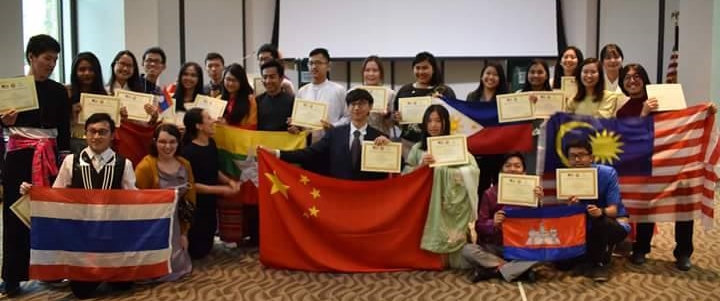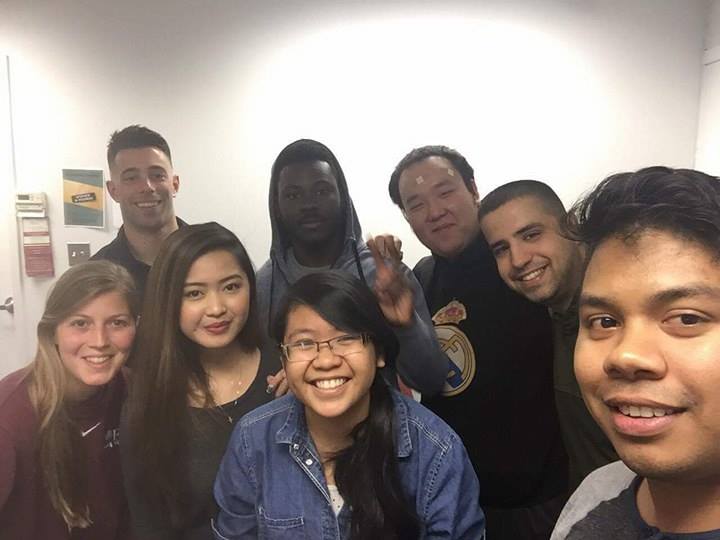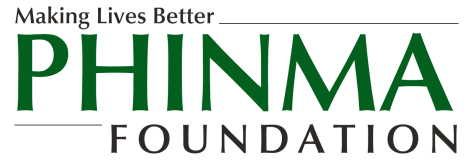

Precious Daluz PNU 4th Year Student
It’s been a little over a month since I’ve returned from my temporary home in Teaneck, New Jersey, and while I often tell myself that I’ve already moved on from what seemed like a second life, I can’t deny that even the supposedly insignificant things can rekindle a lot of priceless memories. Whether it’s the simple act of choosing utensils (never have I felt such an odd relief at the sight of spoons) or sneezing (and no longer hearing the default “Bless you!”), I must say that this transformative experience has permanently reconstructed my perceptions and feelings toward my country and our world in general.
Now I have to admit that –as cliché, as it sounds –becoming a Global Ugrad was something that I never imagined to happen. I was nowhere near being called a star student at the time in comparison with the other chosen candidates, and neither did I bother setting high goals for myself. I was simply a student who thoroughly enjoyed the process of becoming a teacher, and made little comics about it in her spare time. Even as a finalist during the selection period at PNU, I had already conditioned myself to root for my fellow candidate because it is, after all, an immense responsibility as much as it is a privilege and I’ve never represented anything that big before. I guess God wanted to give me a little push, knowing that I could do more. (Who knew that a God-sized push could bring you to the airport?) With no stellar grades or leadership awards to boast of, I faced each interview equipped with only my simple passion for art and education.
As much as I’d like to reveal the ten-month-long application process in detail, I’ll just go straight ahead to the good stuff. To say the least, studying at Fairleigh Dickinson University was like having the whole world with you on campus. Each day, you would hear a minimum of 4 different languages being spoken, and you could learn something about a different country simply by being observant at the cafeteria. For instance, while I and my Latino friends would usually opt for rice (when they had it) and meat for lunch, my friends from Europe and Korea would just have bread or fruit or a plain salad, and yoghurt (how they managed to endure a diet like that, I shall never know). Having been surrounded by such a diverse student body, I constantly felt the pressure to stand out as a Filipino, and thankfully I had my Barkada group (FDU’s official organization for Filipinos) to help me do just that. There were plenty of Fil-Ams in NJ and so I never really felt alone and was even more relieved upon finding out that I had the coolest relatives living within the State.

The things that I learned with each blessing and blunder in the U.S.A. are lessons which I will carry with me for the rest of my life, and I truly hope that they would manifest in my professional life as well. These are also lessons which led me to several other personal advocacies, such as mental health awareness and inclusive education. Here are my top 6 insights, listed just the way I wrote them in my travel journal:
- If you come from a country that has countless problems, then that means you also have numerous opportunities to offer (or even become) a solution.
- People are most productive when they feel like they serve a purpose. Perhaps this is the root of our struggle; you cannot make a great nation out of individuals who simply feel like extras in a movie.
- If you see or feel something that bothers you, it is both a privilege and a responsibility. It is a privilege because apathy is such a common response nowadays that very few are able to truly identify what’s wrong, and it is a responsibility because not everyone does something about what they see
- Instead of it being done occasionally, we must find ways so that volunteerism can be done at any time by all people until it becomes a lifestyle. It has to be embedded in us that there is always someone in need, and that we can all make a contribution.
- Education shouldn’t be something that we feel like escaping from. It should be our ally, our zone of growth, and a source of confidence, not anxiety.
- Professionalism has little to do with suits and ties and everything to do with efficiency driven by compassion.
I feel like I’ve dropped some heavy truth bombs that I myself would have a challenging time living up to, but still, I wrote each and every one of them with the certainty that they would guide me in my newfound pursuits. After all, this is what the program is all about: making a significant mark on the world, for the sake of the world, at whatever cost it entails.

Studying abroad has made me proud to be a Filipino, but beyond that, it has made me proud of humanity. Yes, in spite of all the horrendous and stomach-churning news that we see and hear on a daily basis, I have gained a greater sense hope after coming together with my other fellow UGrads from around the world at Washington D.C. and seeing the beauty of our differences when merged together. Without a doubt, if you had only seen the way we danced together to music we couldn’t understand, or the way we shoved our plates with food that had names we couldn’t even pronounce, or when we cried to the idea of never seeing each other again and having pieces of our hearts scattered across the globe, I am certain that you would have felt that hope too. What we have to understand is that nothing can hold our world together like compassion and collaboration, and I am extremely thankful that I had witnessed that truth personified in hundreds of passionate student leaders whom I now call my friends.
Our place in this world is what we make it. While we may just see a city, others see and feel a whole new way of life. And while you may see yourself as just another person getting by each day, know that you aren’t. You are, like air and water, a necessity; and this world in pain needs what you have to offer, no matter where you come from.
